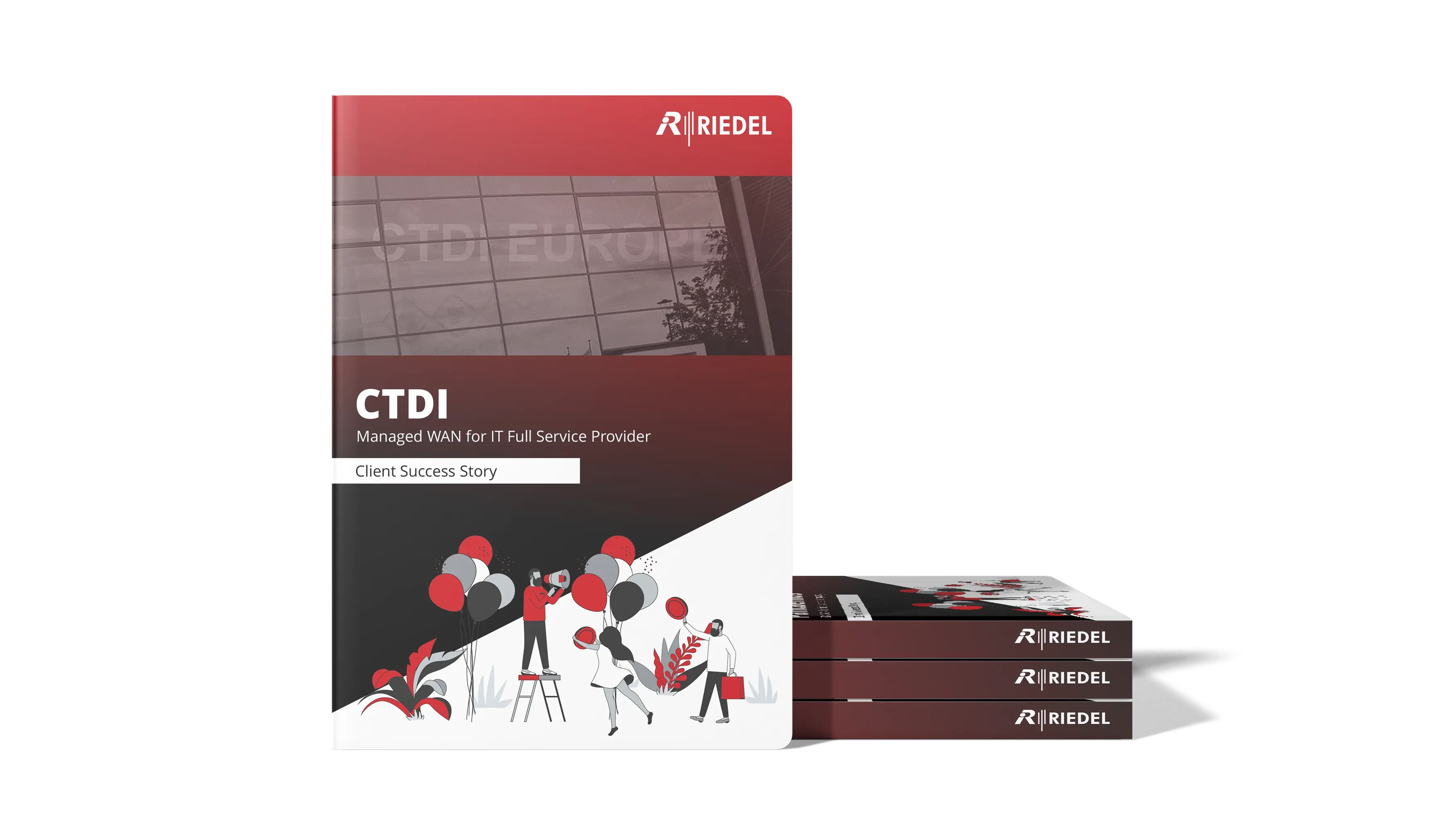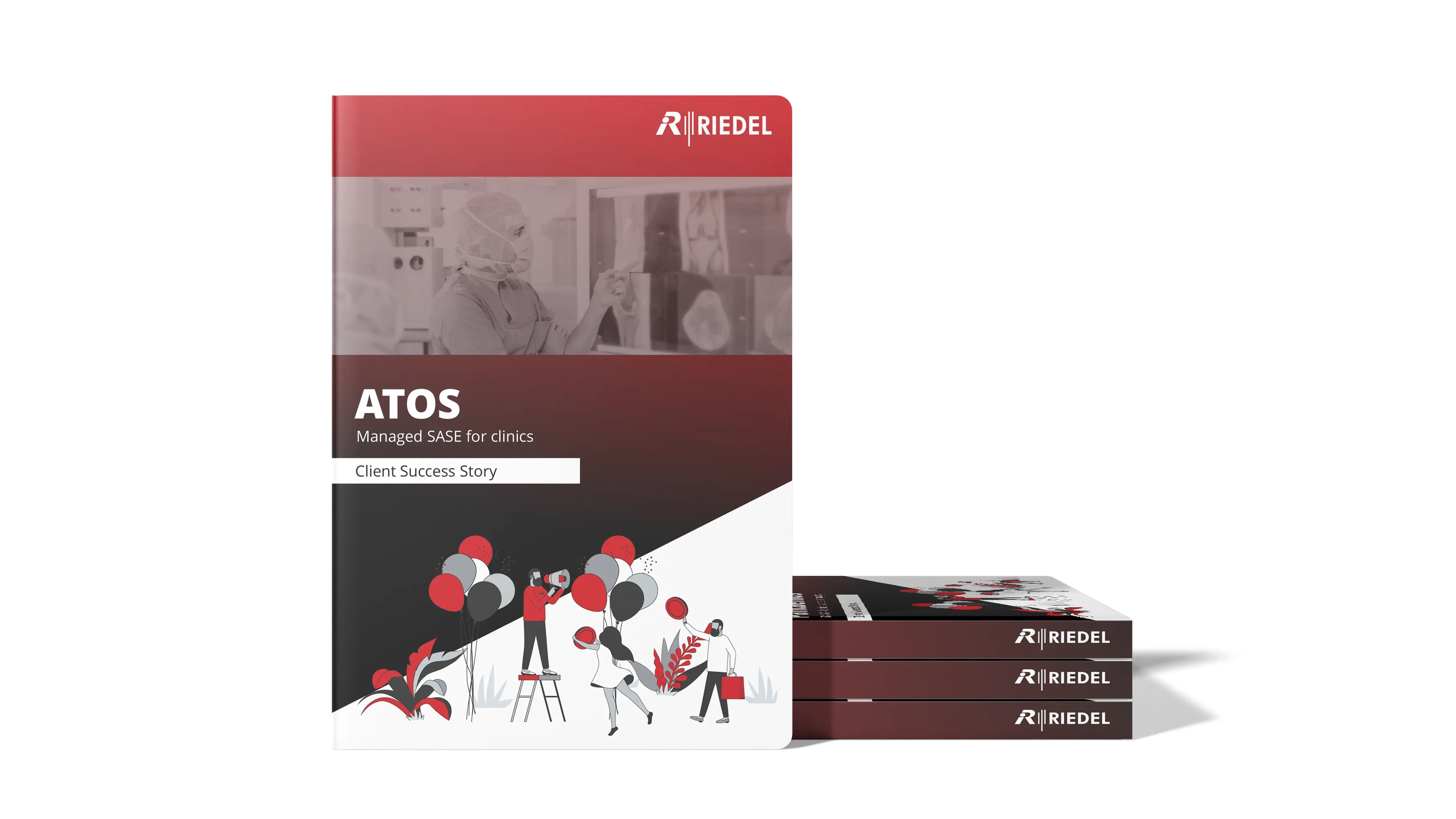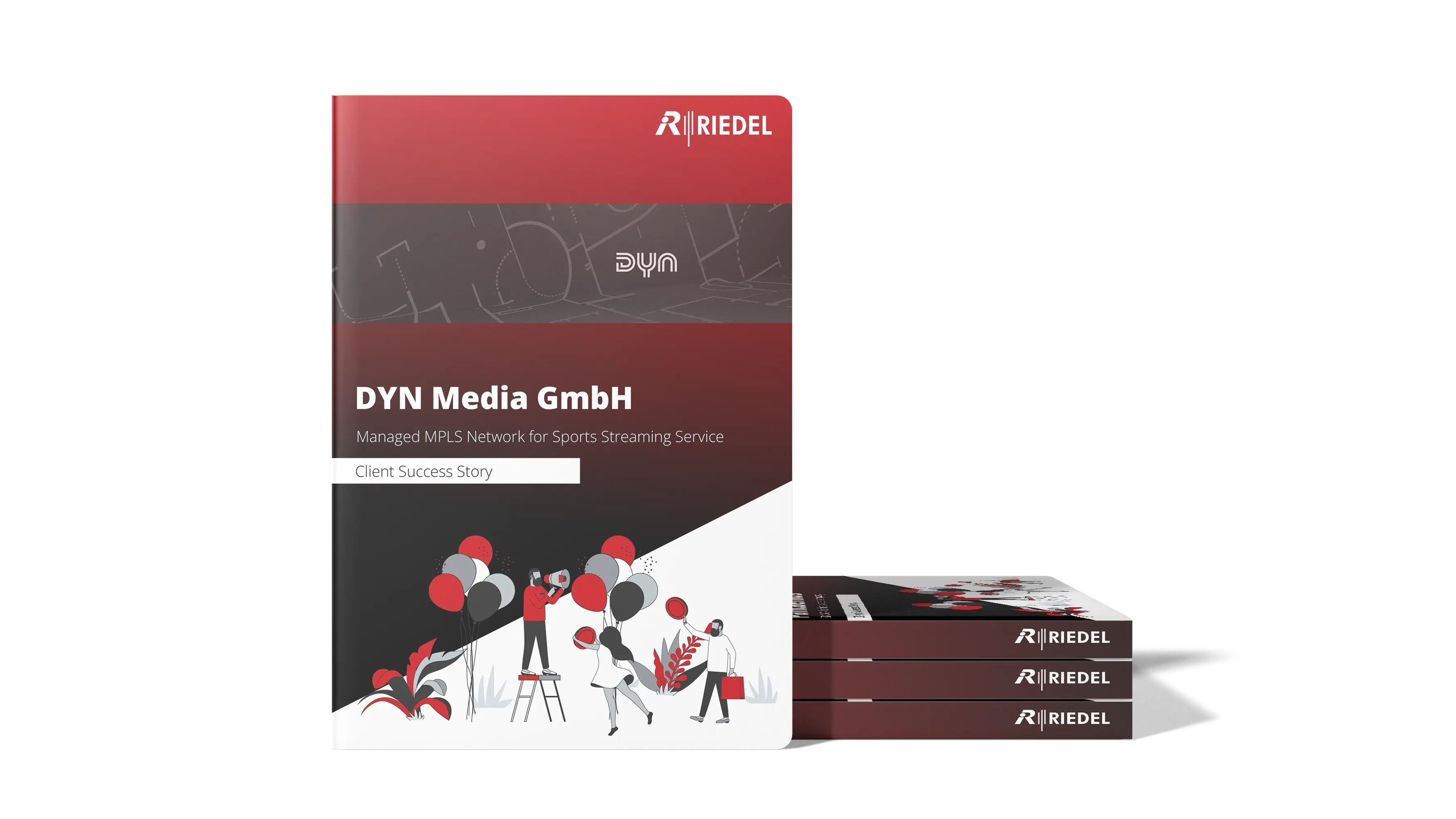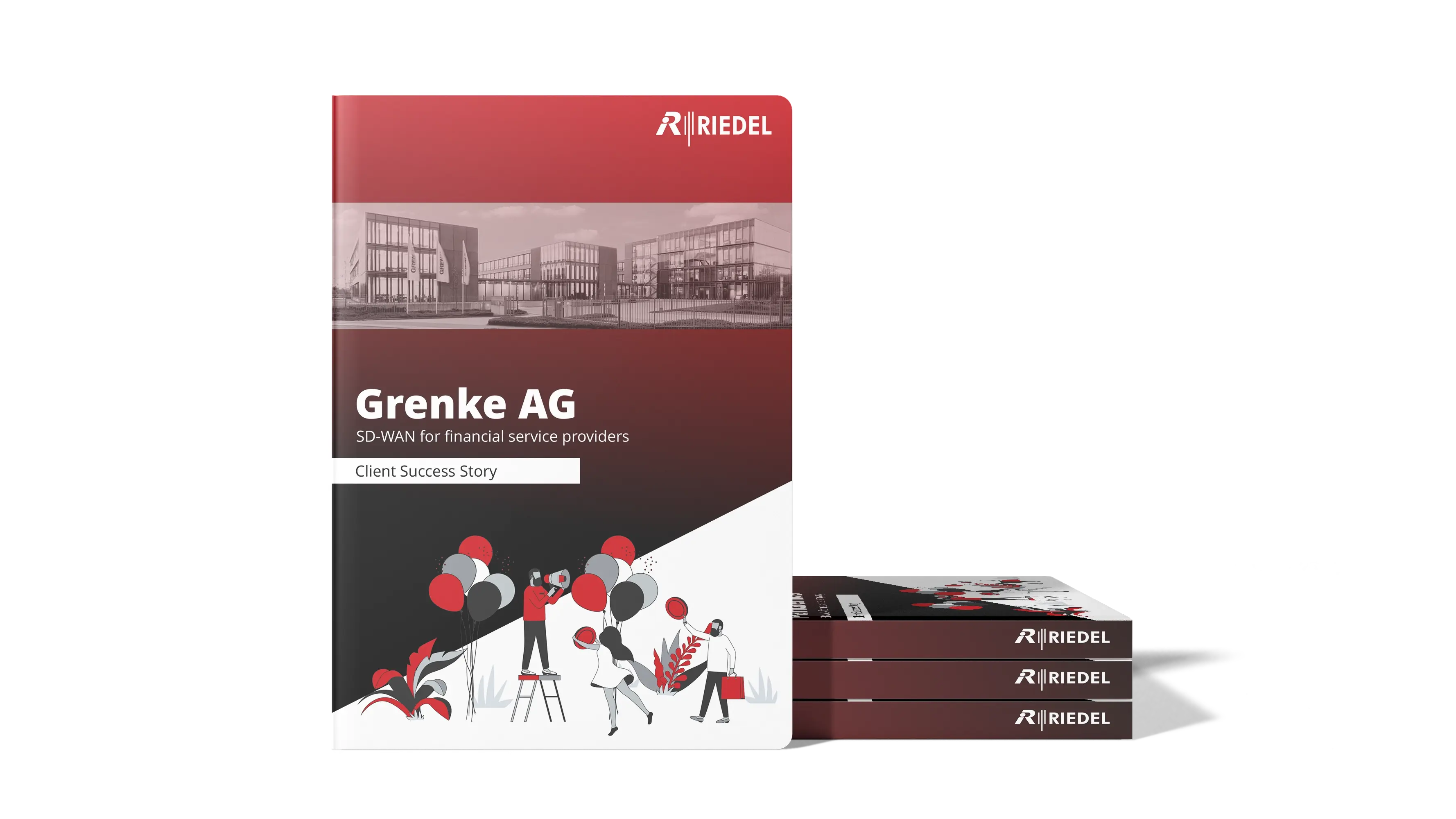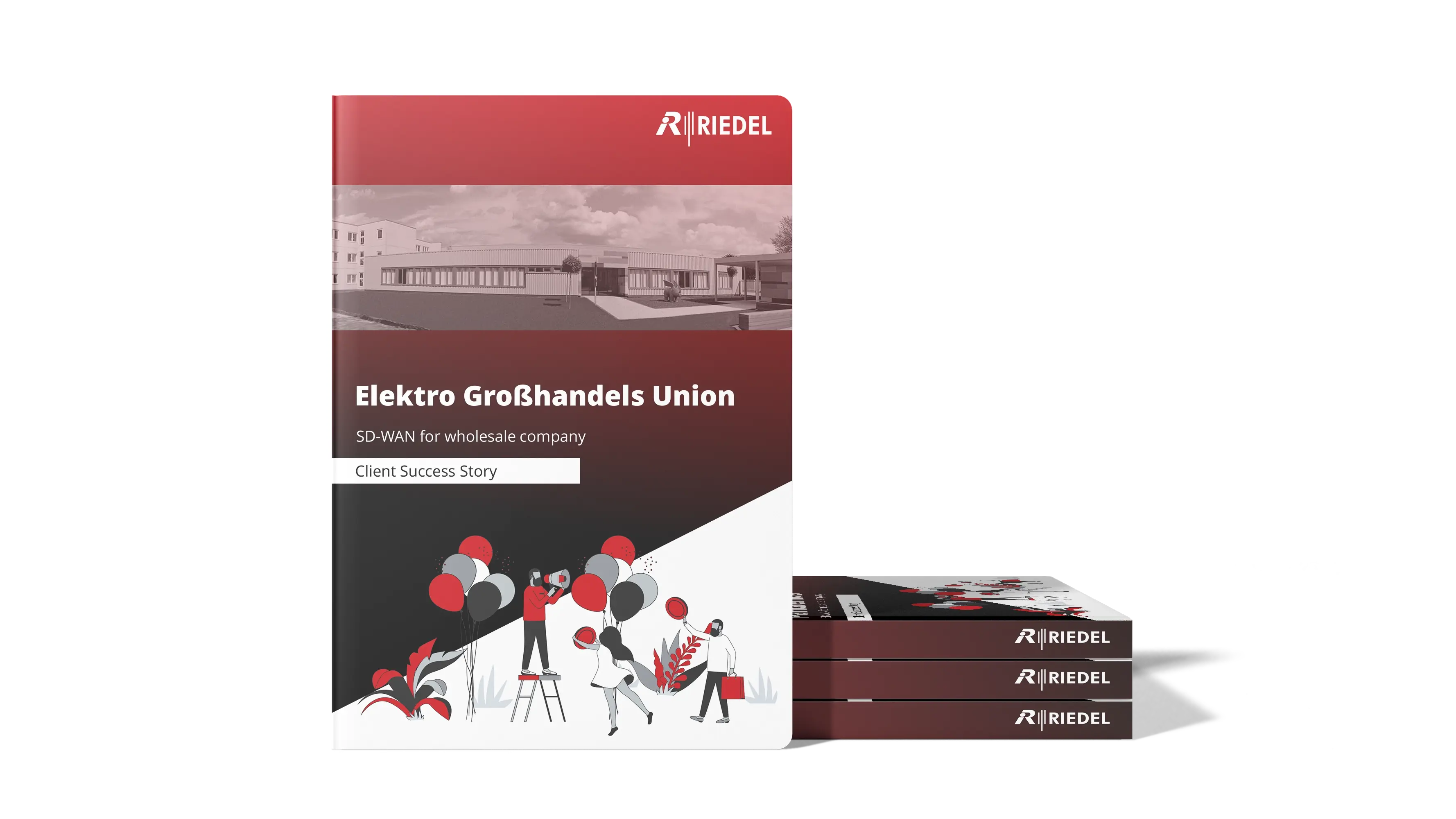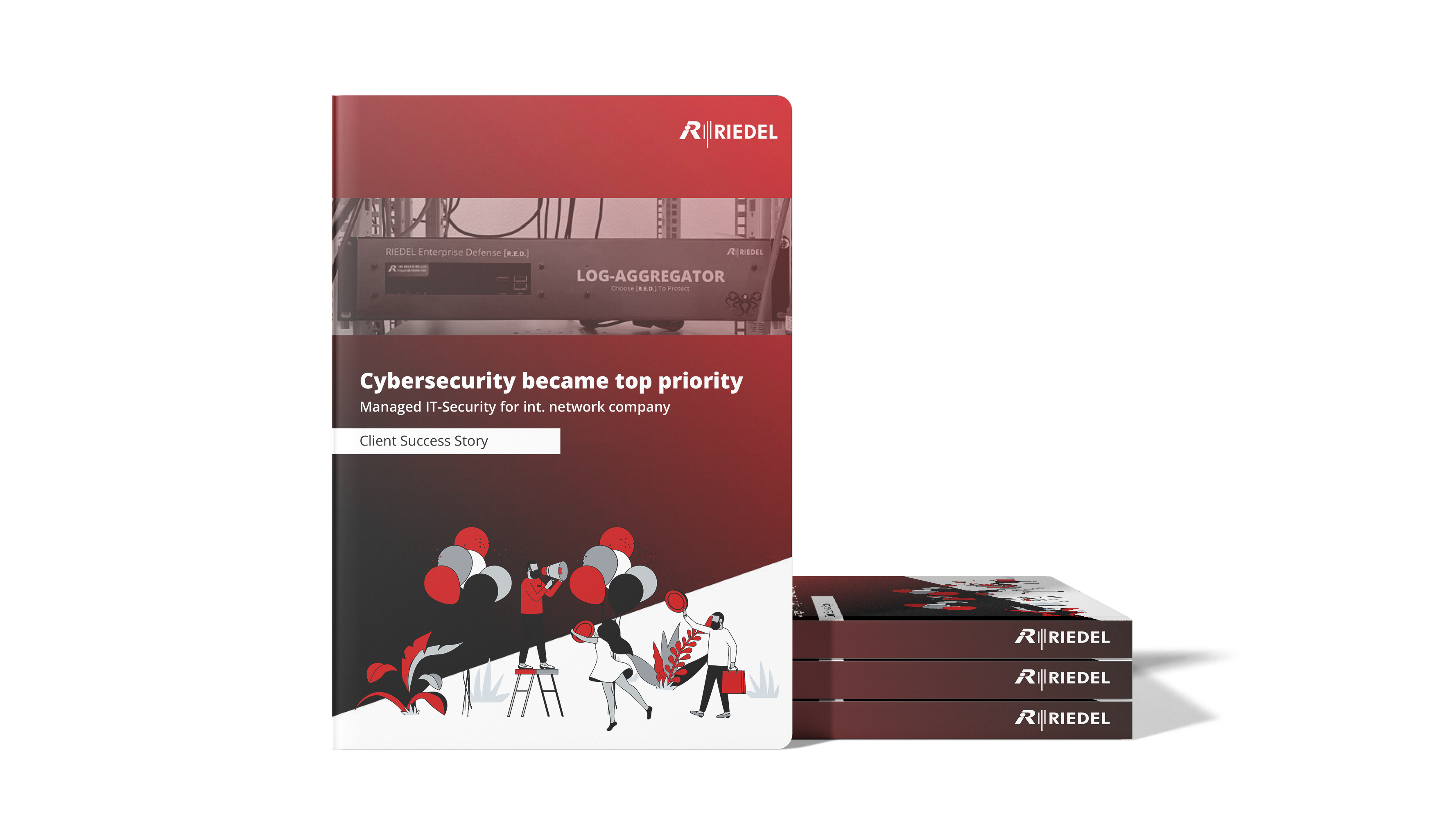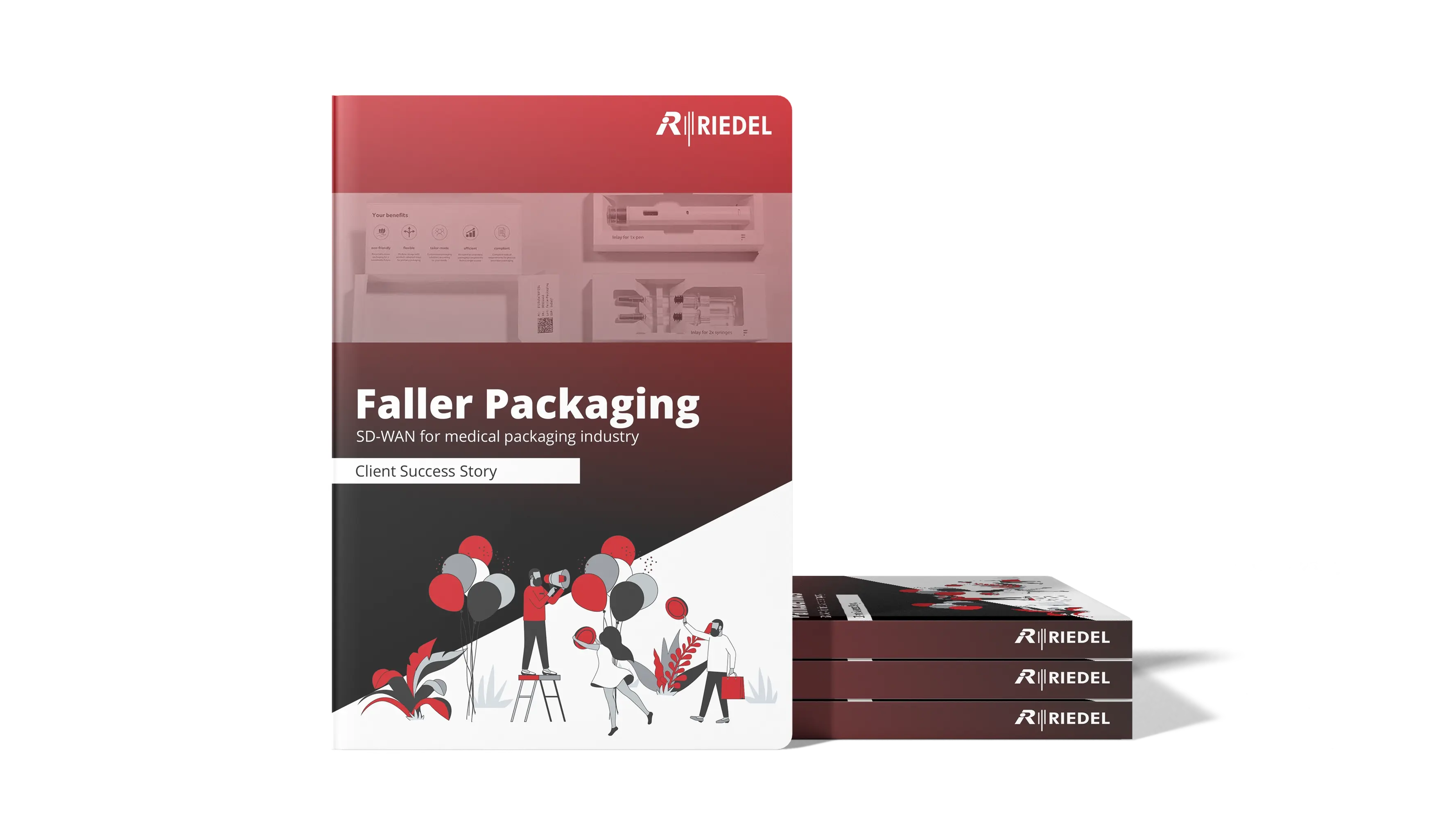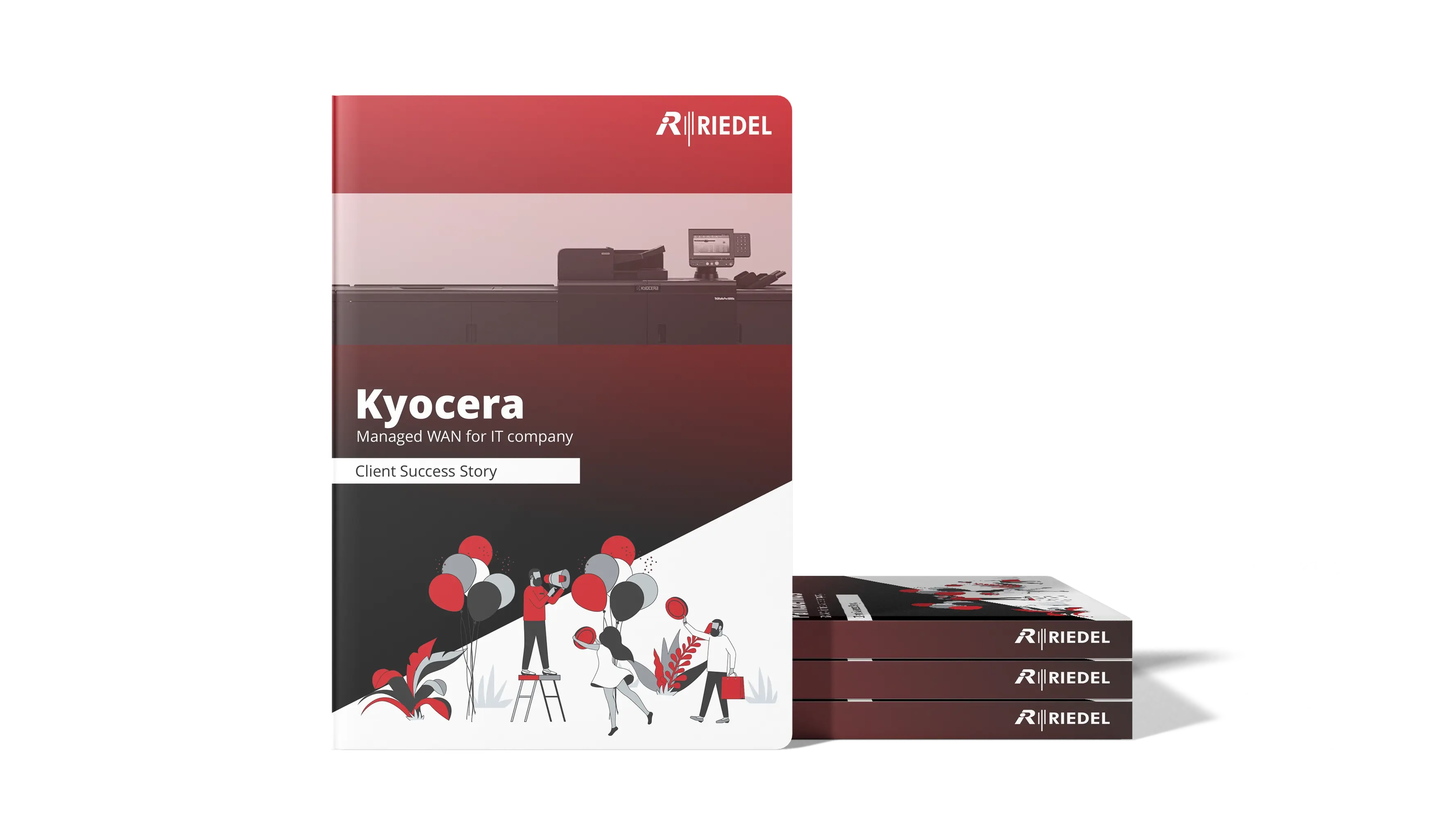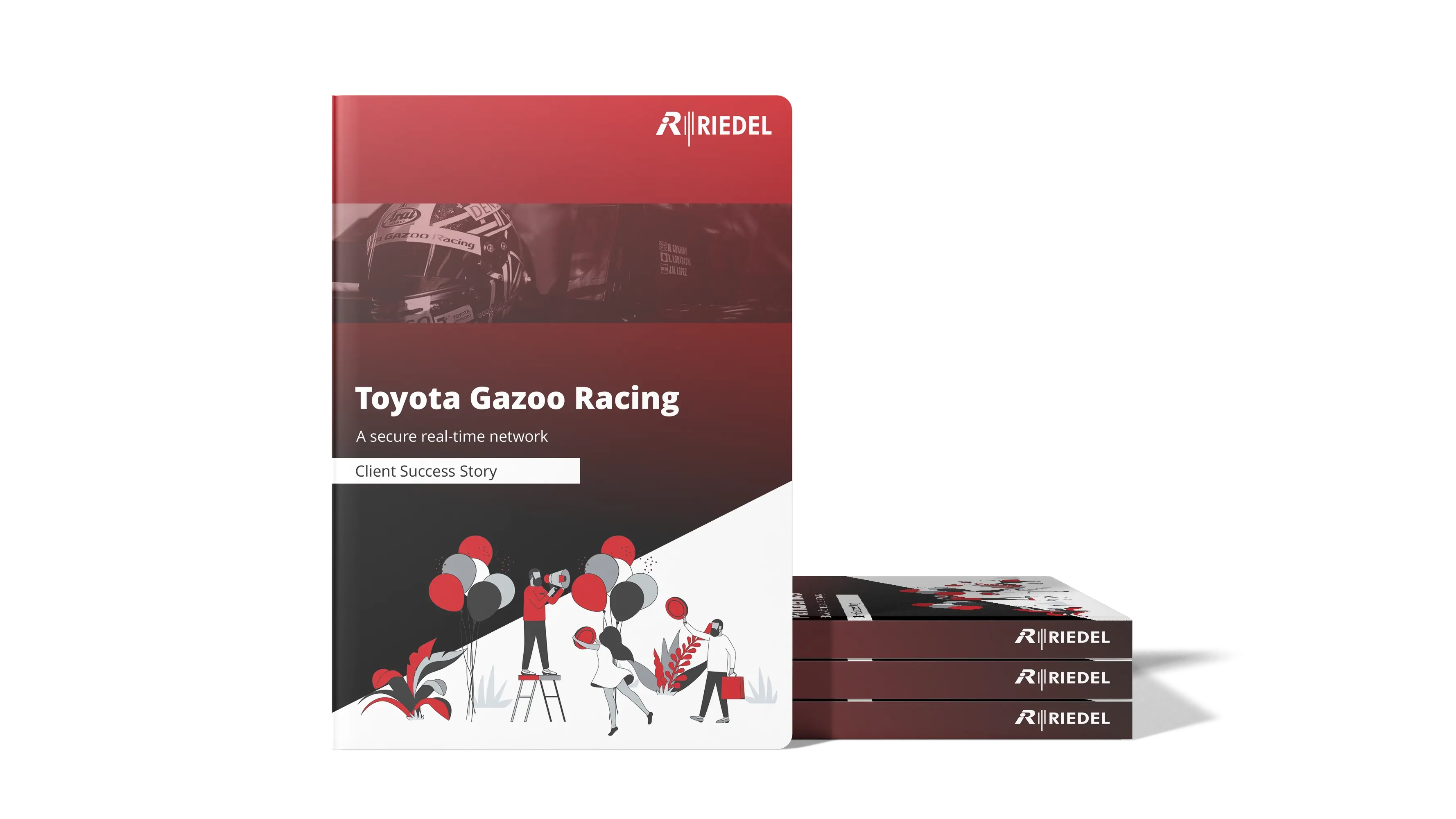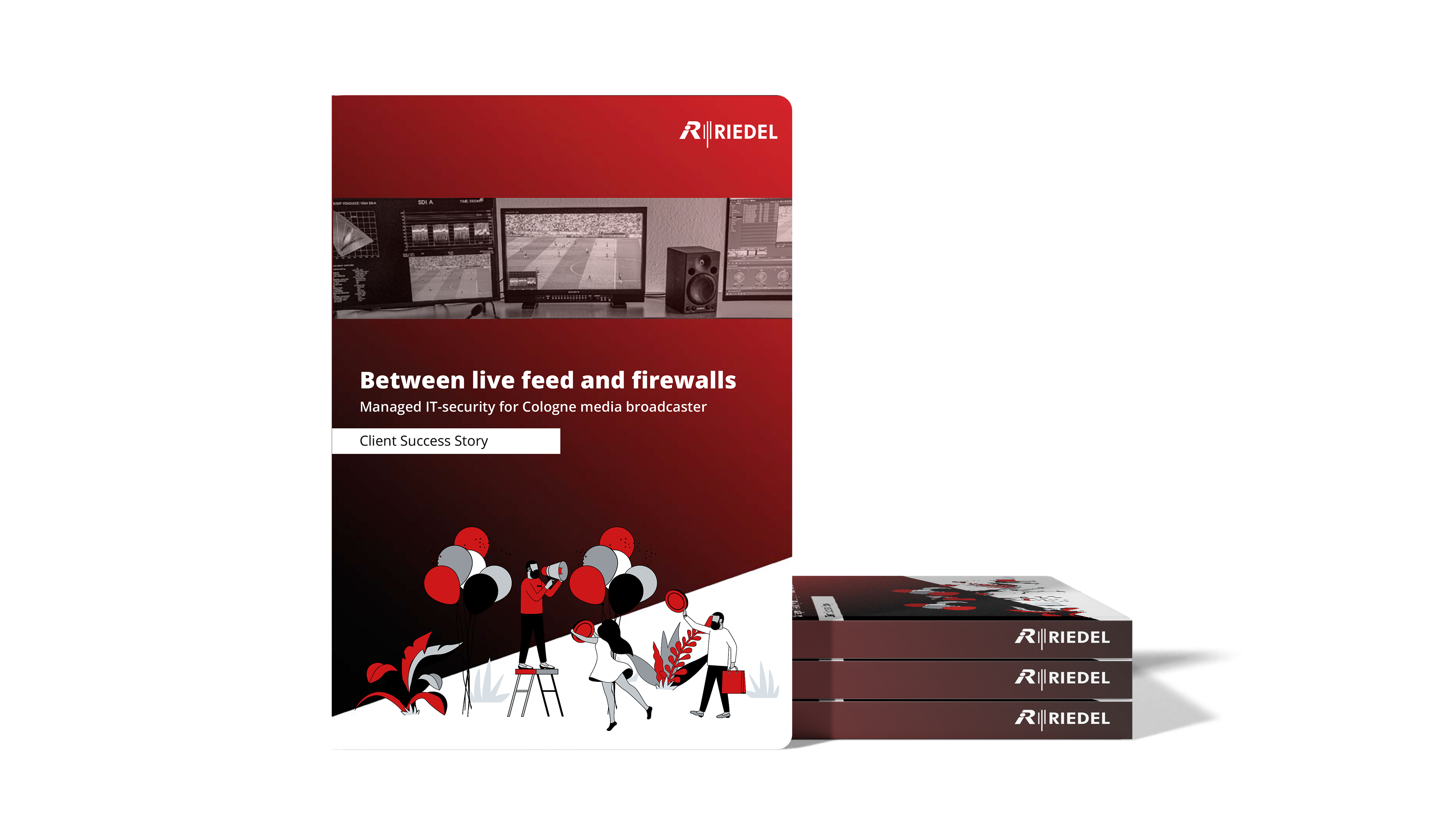DYN Media
Why a new sports streaming provider relies on a traditional MPLS network
DYN Media Packaging Case Study
We are happy to provide you with a PDF for download!

Andreas Heyden
CEO
The name Dyn (derived from the first physical unit for "power") is pronounced like the word "dein". Dyn is therefore "your" sport, "your" club and "your" sports channel: a streaming platform for the most popular sports in Germany alongside soccer. Our goal is to bring them from the second row, where they often found themselves, into the spotlight. We tell the stories behind these sports and their athletes by providing them with an excellent broadcast platform, complemented by engaging social media formats. In addition, we support young talents with 10% of our revenue, because after all, they are the professionals of tomorrow.
Doing things differently
Why a new sports streaming provider is relying on a traditional MPLS network
Germans love sports, but only one sport has dominated media coverage for a long time: soccer is extremely popular here. Nevertheless, there are many other sports that German viewers want to watch. Of the 85 million people in the country, around 17 million are interested in other sports such as handball, basketball, field hockey or volleyball. However, these were often neglected by the media and only played a minor role at best until 2023.
To change this, we have launched Dyn Media.
The name Dyn (derived from the first physical unit for "force") is pronounced like the word "your". Dyn is therefore "your" sport, "your" club and "your" sports channel: a streaming platform for the most popular sports in Germany alongside soccer. Our goal is to bring them from the second row, where they often found themselves, into the spotlight. We tell the stories behind these sports and their athletes by providing them with an excellent broadcast platform, complemented by engaging social media formats. In addition, we support young talent with 10% of our revenue, as they are the professionals of tomorrow.
Building a new streaming platform requires a powerful network - and a partner who does not shy away from Herculean tasks.
We Had to do things differently
Before launching the streaming platform, Dyn Media had two major challenges to overcome. First of all, the broadcasting rights had to be obtained. Fortunately, many of those involved were immediately enthusiastic about the idea of making their leagues more widely accessible and participating in the development of a sustainable, future-proof broadcaster. It helped that the initiative came from Christian Seifert, former CEO of the DFL and one of Germany's most successful media managers, and the Axel Springer Group, the world's sixth-largest publishing house.
"Getting a new streaming service off the ground requires a strong network—and a partner who doesn’t shy away from a monumental task."
Christian's vision, know-how and good name, combined with Axel Springer's reach and investment, ensured that our supporters had confidence in the project. This enabled us to acquire all the necessary rights for handball, basketball, volleyball, table tennis and field field hockey in just six months. Once the rights were settled, the next challenge was the schedule. As a broadcaster, you have to follow the season calendar of the sports leagues. And this is fixed. So we had about a year to draw up a plan, find a technology partner, develop the platform and market it. Everything had to work by the deadline, because the leagues wouldn't wait for us.
The other big challenge was running the platform. Dyn Media is at the beginning of its journey and we didn't have the resources of traditional broadcasters. So we had to do things differently. We focused on sustainability, both in terms of our operations and the environment. To achieve our vision as a sustainable sports broadcaster, we developed a remote production and remote operations model based on a connectivity layer. Broadcasting live sports usually involves a lot of effort and cost - our remote production model eliminates that.

Not many partners could handle the pressure
For our concept, we needed a partner who had to fulfill a few requirements:
-
First, it had to be able to implement the technical aspects from our contractual obligations within a year.
-
We were looking for someone with experience in an industry where every second counts. In sports broadcasting, delays or breakdowns are unacceptable. That the car will break down at some point? That's to be expected. But the television? During a live broadcast? Absolutely not. With OTT broadcasting, everything had to run perfectly from the very first second.
-
The partner had to be able to cope with this pressure.
We launched a formal tendering process and quickly realized that there were only a few providers who could meet these requirements. RIEDEL Networks came forward and said: "Yes, we can do it."
Many members of the Dyn Media management team had worked with RIEDEL before, giving them confidence in the company's capabilities. RIEDEL was not only up for the challenge, but was hands-on from the start. Thomas RIEDEL, who founded RIEDEL Communications in 1987, took part in the first workshop, where he contributed his first creative ideas on how we could achieve our vision. These contributed to our decision in favor of RIEDEL's Managed MPLS Network.

What we get with managed services
Dyn Media doesn't have a dedicated person to look after the external network, so RIEDEL's Managed Services package was a must.
"Remote production saves time and energy while reducing the carbon footprint associated with traditional broadcasts."
The first advantage comes into play in project management. The situation here in Germany is more complex than in the USA, for example, where most clubs - or at least their owners - own the hall or stadium where they play. In Germany, the home venue can belong to the club, the city, a municipality or someone else.
So we had to negotiate directly with the authorities, arena companies and club owners. Even though we had already made some agreements, a project manager would be needed to maintain and continue such business relationships and take care of physical things, such as laying fiber optics or working with subcontractors. At the time, we still had to network 42 venues across the country - and of course comply with all health, safety and environmental regulations. For example, RIEDEL had to postpone the excavation of cable trenches in Hamburg due to the breeding season of an endangered bird species. Dealing with such regulations is simply part of the job.
With Managed Services, productivity is also conveniently available: We only take care of what needs to happen apart from the network connection. A big advantage for our model. In order to offer our product at an attractive price, we can't employ our own cameramen to travel across the country, not to mention the carbon emissions that such a production process would have.
Our remote production model, on the other hand, relies on fiber optic connectivity. We are Germany's largest fiber optic customer for sports broadcasts for the next six years.
Each of our venues has a 1GB cable connected to a 10GB ring, so we can transmit six camera signals per game and up to 14 games simultaneously. From the 10GB ring, the data is transmitted to our remote production site, where we edit and produce the programs for our streaming customers. RIEDEL Networks provides the infrastructure we need to efficiently produce a perfect signal, and the experience for our subscribers is just like traditional broadcasts.
"Working with a single vendor is a major advantage since it leaves no room for finger-pointing when there’s an issue."
In addition to our MPLS, we use RIEDEL's Simplylive Production Suite and communication devices such as the Bolero Wireless Intercom System, because communication is key in remote and hybrid scenarios. Working with just one provider for networking, editing and communication has the great advantage that it is clear who is responsible in the event of problems. Added to this is the enthusiasm and energy that RIEDEL put into the project.
A brighter future for german 2nd tier sports
Dyn Media started broadcasting in August 2023, and the most important key figure is: Are we broadcasting? The network is the foundation of our work, and it had to be working in 85% of our venues by the start of the season. (The delays in the remaining 15% were related to city permits for cable groundwork). Today, all venues are connected and we have already produced more than 400 games in a very short time over our MPLS network.
Of course, a remote production model always presents challenges. For example, the composition of the leagues changes every year and new venues often have to be integrated within a few months. But thanks to the experience we have already gained, Dyn Media and RIEDEL are ideally positioned to do this quickly and efficiently and to continue to grow.
I think there could be a big market for network operators in Europe and Australia, because there are a lot of competitions here and a lot of traveling involved. While simultaneous broadcasts of on-site productions multiply personnel costs, remote production saves a lot of time and energy.
In addition, our team likes working remotely because they can produce more games per day and earn more as a result, and they are not away from home as often and therefore have more time for friends and family.
"When you have no legacy holding you back, you can commit to doing things the way that makes sense for today."
Nothing had to be reinvented for this project, but the result was something new - RIEDEL set up a typical MPLS network to push the boundaries in sport. The network is expensive, but the total cost of ownership is lower, and we pass those savings on to our subscribers.
We are creating the next generation of sports broadcasting without any legacy costs. As a result, Dyn Media is one of the world's top providers of contemporary sports content production.
These customers (and many more) already rely on RIEDEL Networks.


Success Stories
Some of our references and customer projects presented in detail.

Pantaenius
Pantaenius Holding GmbH is optimizing its global network performance, increasing reliability, and creating a flexible basis for international growth with the SD-WAN solution from RIEDEL Networks.
Read your own success story?
It only takes a tiny moment to send us a message!
